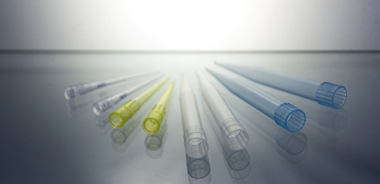
EV71成熟病毒颗粒及空病毒颗粒的晶体结构
近日,国际著名学术期刊《柳叶刀》在线发表了“肠道病毒71型疫苗在中国健康幼儿和婴幼儿中的免疫原性和安全性:随机、双盲、安慰剂对照Ⅱ期临床试验”的研究论文,在全球第一次报道了我国肠道病毒71型(EV71)疫苗II期临床研究结果。
肠道病毒71型(Human enterovirus 71,简称EV71),是引起婴幼儿手足口病(hand - foot and mouth disease;HFMD)主要病原体之一。
该研究由江苏省疾病预防控制中心、中国食品药品检定研究院、中国生物技术股份有限公司北京微谷生物医药有限公司等单位协作开展。研究探讨了疫苗人体免疫后的中和抗体转归,血清学研究结果支持开展III期临床。同时,提出了适用于我国6~36月龄婴幼儿和幼儿的适宜剂量和剂型为采用320U剂量佐剂疫苗2针免疫程序。
据了解,这些成果的取得,依赖于前期各协作单位开展的大量基础研究以及国家重大传染病专项和重大新药创新专项等项目的支持。研究凸显出中国在疫苗创新方面的能力,标志着相关质量控制和评价研究达到国际水平。
据介绍,为保证疫苗研发的顺利进行,中国食品药品检定研究院和相关单位建立了国家抗原定量标准品和国家中和抗体标准品,并构建标准化的疫苗临床样本检测技术体系,解决了临床样本检测标准化等难题,成功应用于疫苗临床试验的评价。

 Immunogenicity and safety of an enterovirus 71 vaccine in healthy Chinese children and infants: a randomised, double-blind, placebo-controlled phase 2 clinical trial
Immunogenicity and safety of an enterovirus 71 vaccine in healthy Chinese children and infants: a randomised, double-blind, placebo-controlled phase 2 clinical trial
Feng-Cai Zhu MSc, Zheng-Lun Liang PhD, Xiu-Ling Li MSc, Heng-Ming Ge BSc, Fan-Yue Meng MSc, Qun-Ying Mao PhD, Yun-Tao Zhang PhD, Yue-Mei Hu BSc, Zhen-Yu Zhang BSc, Jing-Xin Li MSc, Fan Gao MSc, Qing-Hua Chen MSc, Qi-Yan Zhu BSc, Kai Chu MSc, Xing Wu MSc, Xin Yao PhD, Hui-Jie Guo MSc, Xiao-Qin Chen BSc, Prof Pei Liu PhD, Yu-Ying Dong MSc, Feng-Xiang Li PhD, Xin-Liang Shen MSc , Dr Jun-Zhi Wang PhD
Background Enterovirus 71 (EV71) outbreaks are a socioeconomic burden, especially in the western Pacific region. Results of phase 1 clinical trials suggest an EV71 vaccine has a clinically acceptable safety profile and immunogenicity. We aimed to assess the best possible dose and formulation, immunogenicity, and safety profile of this EV71 vaccine in healthy Chinese children.
Methods This randomised, double-blind, placebo-controlled, phase 2 trial was undertaken at one site in Donghai County, Jiangsu Province, China. Eligible participants were healthy boys or girls aged 6—36 months. Participants were randomly assigned (1:1:1:1:1) to receive either 160 U, 320 U, or 640 U alum-adjuvant EV71 vaccine, 640 U adjuvant-free EV71 vaccine, or a placebo (containing alum adjuvant only), according to a blocked randomisation list generated by SAS 9.1. Participants and investigators were masked to the assignment. The primary endpoint was anti-EV71 neutralising antibody geometric mean titres (GMTs) at day 56, analysed according to protocol. The study is registered with ClinicalTrials.gov, number NCT01399853.
Findings We randomly assigned 1200 participants, 240 (120 aged 6—11 months [infants] and 120 aged 12—36 months [children]) of whom were assigned to each dose. 1106 participants completed the study and were included in the according-to-protocol analysis. The main reasons for dropout were withdrawal of consent and refusal to donate a blood sample. Infants who received the 640 U adjuvant vaccine had the highest GMTs on day 56 (742·2 [95% CI 577·3—954·3]), followed by those who received the 320 U formulation (497·9 [383·1—647·0]). For children, those who received the 320 U formulation had the highest GMTs on day 56 (1383·2 [1037·3—1844·5]). Participants who received the vaccine had significantly higher GMTs than did who received placebo (p<0·0001). For the subgroup of participants who were seronegative at baseline, both infants and children who received the 640 U adjuvant vaccine had the highest GMTs on day 56 (522·8 [403·9—676·6] in infants and 708·4 [524·1—957·6] in children), followed by those who received the 320 U adjuvant vaccine (358·2 [280·5—457·5] in infants and 498·0 [383·4—646·9] in children). 549 (45·8%) of 1200 participants (95 CI 42·9—48·6%) reported at least one injection-site or systemic adverse reaction, but the incidence of adverse reactions did not differ significantly between groups (p=0·36). The 640 U alum-adjuvant vaccine group had a significantly higher incidence of induration than did the 640 U adjuvant-free group (p=0·001).
Interpretation Taking immunogenicity, safety, and production capacity into account, the 320 U alum-adjuvant formulation of the EV71 vaccine is probably the best possible formulation for phase 3 trials.
Funding The National Science and Technology Major Project (2011ZX10004-902) of the Chinese Ministry of Science and Technology, China's 12—5 National Major Infectious Disease Program (2012ZX10002-001), and Beijing Vigoo Biological.







